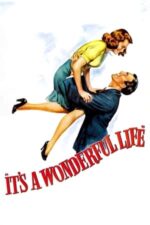The Enduring Allure of Absence: Why Black and White Still Matters
There’s something inherently captivating about black and white cinema, isn't there? It’s more than just a stylistic choice; it’s a deliberate stripping away – a removal of visual noise that forces you to engage with the story on a deeper level. We live in a world saturated with color, bombarded by vibrant imagery, so choosing to experience a film devoid of it feels almost… rebellious. But it's also profoundly beautiful.
Think about Falling in Love Like in Movies. The monochrome palette isn’t just aesthetic; it amplifies the melancholy and nostalgia woven into its narrative. It lends a timeless quality to the story of lost love, suggesting that these feelings transcend specific eras or trends. Color can be distracting – it can tell you how to feel. Black and white demands your interpretation.
This isn’t just about aesthetics either. Historically, black and white was simply how films were made! It's a direct link to the early days of cinema, offering us a window into a different era. But even as technology advanced, filmmakers continued to embrace it – sometimes for stylistic reasons, sometimes to evoke a specific mood. Consider INFRASTRATA, which uses static black and white shots to create an almost meditative experience, focusing on the textures and forms of decaying architecture. It’s less about narrative and more about atmosphere, a visual poem exploring decay and interconnectedness.
And it's fascinating how filmmakers use monochrome to explore themes beyond nostalgia. The Monochrom Entity uses its lack of color to create a truly alienating experience for the protagonist – a world stripped bare, forcing him to confront fundamental questions about existence. It’s a powerful visual metaphor for isolation and disorientation. Even something as wonderfully absurd as Vampire Zombies…from Space! gains an extra layer of campy charm through its black and white presentation; it feels like a lost relic from a bygone era of monster movies, embracing the inherent silliness with a wink.
I remember seeing a restored print of Casablanca in black and white years ago – the grain, the contrast…it was breathtaking. It wasn't just about appreciating the film itself (which is undeniably brilliant), but understanding how much of its power resided within that visual language.
Black and white isn’t “better” than color; it simply offers a different kind of experience. It invites us to look closer, to feel deeper, and to appreciate the artistry of filmmaking in its purest form. So next time you're browsing for something to watch, consider giving a black and white film a chance – you might be surprised by what you discover.






































